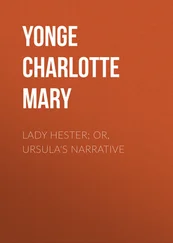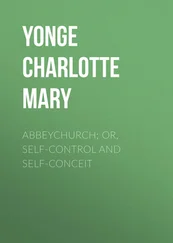Charlotte Yonge - Pioneers and Founders
Здесь есть возможность читать онлайн «Charlotte Yonge - Pioneers and Founders» — ознакомительный отрывок электронной книги совершенно бесплатно, а после прочтения отрывка купить полную версию. В некоторых случаях можно слушать аудио, скачать через торрент в формате fb2 и присутствует краткое содержание. Жанр: foreign_prose, foreign_religion, Философия, foreign_psychology, foreign_antique, на английском языке. Описание произведения, (предисловие) а так же отзывы посетителей доступны на портале библиотеки ЛибКат.
- Название:Pioneers and Founders
- Автор:
- Жанр:
- Год:неизвестен
- ISBN:нет данных
- Рейтинг книги:3 / 5. Голосов: 1
-
Избранное:Добавить в избранное
- Отзывы:
-
Ваша оценка:
- 60
- 1
- 2
- 3
- 4
- 5
Pioneers and Founders: краткое содержание, описание и аннотация
Предлагаем к чтению аннотацию, описание, краткое содержание или предисловие (зависит от того, что написал сам автор книги «Pioneers and Founders»). Если вы не нашли необходимую информацию о книге — напишите в комментариях, мы постараемся отыскать её.
Pioneers and Founders — читать онлайн ознакомительный отрывок
Ниже представлен текст книги, разбитый по страницам. Система сохранения места последней прочитанной страницы, позволяет с удобством читать онлайн бесплатно книгу «Pioneers and Founders», без необходимости каждый раз заново искать на чём Вы остановились. Поставьте закладку, и сможете в любой момент перейти на страницу, на которой закончили чтение.
Интервал:
Закладка:
His purpose in coming to Northampton had been to consult Dr. Mather, whose verdict was that he was far gone in decline, and who gave him no advice but to ride as much as possible. So little difference did this sentence make to him that he never noted it in his diary, though he spoke of it cheerily in the Edwards family—a large household of young people—where he was so much beloved, that when he decided to go to Boston, Jerusha, the second daughter, entreated to be allowed to accompany him, to nurse him as his sister would have done.
The pure, severe simplicity of those early American manners was such, that no one seems to have been surprised at a girl of eighteen becoming the attendant of a man of twenty-nine. Jerusha had the full consent and approbation of her parents, and she was a great comfort and delight to him. He told her father that she was more spiritual, self denying, and earnest to do good, than any young person he had ever known; and on doubt their communings were far above earth, hovering, as he was well known to be, upon the very borders of the grave.
They took four days to reach Boston, and there he was received with the greatest respect by all the ministers; but, a week after his arrival, so severe an attack of his illness came on that he became delirious, and was thought to be at the point of death. Again, however, he came back enough to life to sit up in bed and write ardent letters of counsel to the brother who had succeeded him among his Indians, and likewise to give his friends the assurance of his perfect peace and joy. He said that he had carefully examined himself, and though he had found much pride, selfishness, and corruption, he was still certain that he had felt it his greatest happiness to glorify and praise God; and this certainty, together with his faith in the Redeemer, had calmed all the anguish he had suffered for years.
Whenever he was able to converse he had numerous visitors, especially from the deputies of the Society in London which had assisted Eliot. A legacy for the support of two missionaries had newly been received, and his counsel on the mode of employing it was asked. He was able to strive to imbue others with the same zeal as himself, and to do much on behalf of his own mission, although he often lay so utterly exhausted that he said of himself that he could not understand how life could be retained. One of his brothers, a student at Yale, came to see him, and to tell him of the death of his favourite sister, of whose illness he had not even heard, but it was no shock to him, for he felt far more sure of meeting her again than if she had been left on earth.
The summer weather, to the surprise of all, brought back a slight revival of strength, and some of his friends began to hope he might yet recover, but he knew his own state too well, and told them he was as assuredly a dead man as if he had been shot through the heart; still he was resolved to profit by this partial restoration to return to Northampton, chiefly because the rumour had reached him that the Bostonians had intended to give him such a funeral as should testify their great esteem; and being disappointed in this, they intended to assemble and escort him publicly, while still alive, out of their city, but the bare idea naturally made him so unhappy that they were forced to give it up.
Five days were spent in the journey, and again the Edwardses reverentially opened their doors to a guest so near heaven. For some time he rode out two or three miles daily, and sat with the family, writing or conversing cheerfully when not engaged in prayer. His brother John came from Crossweeksung and cheered him with a good account of his Indians; and hearing of the great need of another school, he wrote to the friends who had shown themselves so warmly interested in him at Boston, and was gratified by their reply, with a subscription of 200 l. for the purpose, and of 75 l. for the mission to the Six Nations. His answers were written with his own hand; but he had become so much weaker that he felt this his last task. He had been one who, in his short life, had sown in tears to reap in joy.
He was sinking fast as the autumn cold came on, often talking tenderly to the little ones of the house, but suffering terribly at times, and sighing, “Why is His chariot so long coming?” then blaming himself for over-haste to be released.
He had a smile for Jerusha as she came into his room on Sunday morning. “Are you willing to part with me? I am willing to part with you, though if I thought I could not see you and be happy with you in another world, I could not bear to part. I am willing to leave all my friends. I am willing to leave my brother, though I love him better than any creature living. I have committed him and all my friends to God, and can leave them with God!”
Presently, looking at the Bible in her hands, he said, “Oh that dear Book! the mysteries in it and in God’s providence will soon be unfolded.”
He lingered in great agony at times till the 9th of October, 1747, when came a cessation of pain, and during this lull he breathed his last, then wanting six months of his thirtieth birthday. He had told Jerusha that they should soon meet above, and, in effect, she only lived until the next February. She told her father on her death-bed, that for years past she had not seen the time when she had any wish to live a moment longer, save for the sake of doing good and filling up the measure of her duty.
David Brainerd’s career ended at an age when John Eliot’s had not begun. It was a very wonderful struggle between the frail suffering body and the devoted, resolute spirit, both weighed down by the natural morbid temper, further depressed by the peculiar tenets of the form of doctrine in which he had been bred. The prudent, well-weighed measures of the ripe scholar, studious theologian, and conscientious politician, formed by forty-two years’ experience of an old and a new country, could not be looked for in the sickly, self-educated, enthusiastic youth who had been debarred from the due amount of study, and started with little system but that of “proclaiming the Gospel”—even though ignorant of the language of those to whom he preached. And yet that heart-whole piety and patience was blessed with a full measure of present success, and David Brainerd’s story, though that of a short life, over-clouded by mental distress, hardship, and sickness, fills us with the joyful sense that there is One that giveth the victory.
CHAPTER III. CHRISTIAN FRIEDRICH SCHWARTZ, THE COUNCILLOR OF TANJORE
We must turn from America to the warmer regions of the East, from the patriarchal savage to complicated forms of society, and from the Red-skin to the Hindoo—a man of far nearer affinity to ourselves, being, like us, of the great Indo-European race, speaking a language like our own, an altered, corrupted, and intermingled dialect of the same original tongue, and his ancestors originally professing a religion in which the same primary ideas may be traced as those which were held by our ancient northern forefathers, and which are familiar to us in the graceful dress imposed on them by the Greeks. The sacred writings of the Hindoos form the earliest storehouse of the words of our common language, and the thoughts therein found, though recorded after the branches had parted from the common stock, are nearer the universal germ than those to be found anywhere else, and more nearly represent the primary notion of religion held by the race of Japheth, after that of Shem, to which God revealed Himself more distinctly, had parted from it. These oldest writings are quaint, pure, and simple, but on them the fancies of a race enervated by climate engrafted much that was hideous, monstrous, and loathsome, leading to gross idolatry, and much vice perpetrated in the name of religion. Mythology always degenerates with the popular character, and then, so far as the character is formed by the religious faith, the mythology helps to debase it further, until the undying moral sense of conscience awakens again in some man, or band of men, and a new morality arises; sometimes grafted upon philosophic reasoning, sometimes upon a newly-invented or freshly introduced religion.
Читать дальшеИнтервал:
Закладка:
Похожие книги на «Pioneers and Founders»
Представляем Вашему вниманию похожие книги на «Pioneers and Founders» списком для выбора. Мы отобрали схожую по названию и смыслу литературу в надежде предоставить читателям больше вариантов отыскать новые, интересные, ещё непрочитанные произведения.
Обсуждение, отзывы о книге «Pioneers and Founders» и просто собственные мнения читателей. Оставьте ваши комментарии, напишите, что Вы думаете о произведении, его смысле или главных героях. Укажите что конкретно понравилось, а что нет, и почему Вы так считаете.












